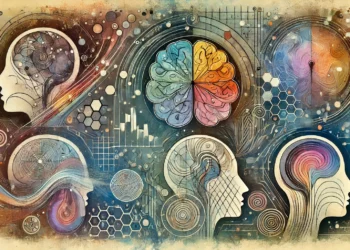In an ironic twist, researchers at Penn State University found that anxious people may have anxiety about maybe feeling anxiety in the future — making them more anxious.

People with anxiety may actively resist relaxation to avoid large jumps in anxiety if something bad does happen, the new study reports. According to the findings, people who were more sensitive to shifts in negative emotion — quickly moving from a relaxed state to one of fear, for example — were more likely to feel anxious while being led through relaxation exercises.
But what if?!
“People may be staying anxious to prevent a large shift in anxiety, but it’s actually healthier to let yourself experience those shifts,” said Michelle Newman, Professor of Psychology at Penn State and the study’s second author.
“The more you do it, the more you realize you can do it and it’s better to allow yourself to be relaxed at times. Mindfulness training and other interventions can help people let go and live in the moment.”
The results can benefit those who experience “relaxation-induced anxiety,” she adds, who become anxious during relaxation training. They also help show why relaxation treatments can potentially backfire, causing more anxiety.
People who struggle to relax and let go of anxiety are exactly the ones who need to be able to do it “more than others” as they’re likely battling an anxiety disorder, according to Hanjoo Kim, a graduate student in psychology and the paper’s first author.
Relaxation-induced anxiety has been documented since the 1980s, but its cause has remained unknown. The present study builds on Newman’s past work, especially the “contrast avoidance theory”. She explains that it works as a self-reinforcing loop.
“The Contrast Avoidance model proposes that individuals with generalized anxiety disorder are excessively sensitive to negative emotional shifts in response to unpleasant events, and thus recruit a state of sustained […] worry as a defensive stance against such shifting states,” Newman explains in a 2014 paper.
“Because most of the things we worry about don’t end up happening, what’s reinforced in the brain is, ‘I worried and it didn’t happen so I should continue worrying.'”
The team worked with 96 college students: 32 people with generalized anxiety disorder, 34 people with major depressive disorder and 30 controls with neither. The participants were led through relaxation exercises in the lab, then shown videos that could provoke fear or sadness. They then answered a survey meant to gauge how sensitive they were to the changes in their emotional state. For example, some participants would have a harder time dealing with the emotions after relaxing, while others would find that the exercises helped them.
In the second step of the experiment, the participants were led through the same process. By comparing their answers on the surveys, the team had a rough indication of how anxious they were to go through the experience the second time.
The authors report that people with generalized anxiety disorders were more likely to be sensitive to changes in emotional states (like that involved in the experiment). They note these participants were also more anxious during the relaxation exercises. People with major depressive disorder showed similar results, but not as strong.
The paper “The paradox of relaxation training: Relaxation induced anxiety and mediation effects of negative contrast sensitivity in generalized anxiety disorder and major depressive disorder” has been published in the Journal of Affective Disorders.






